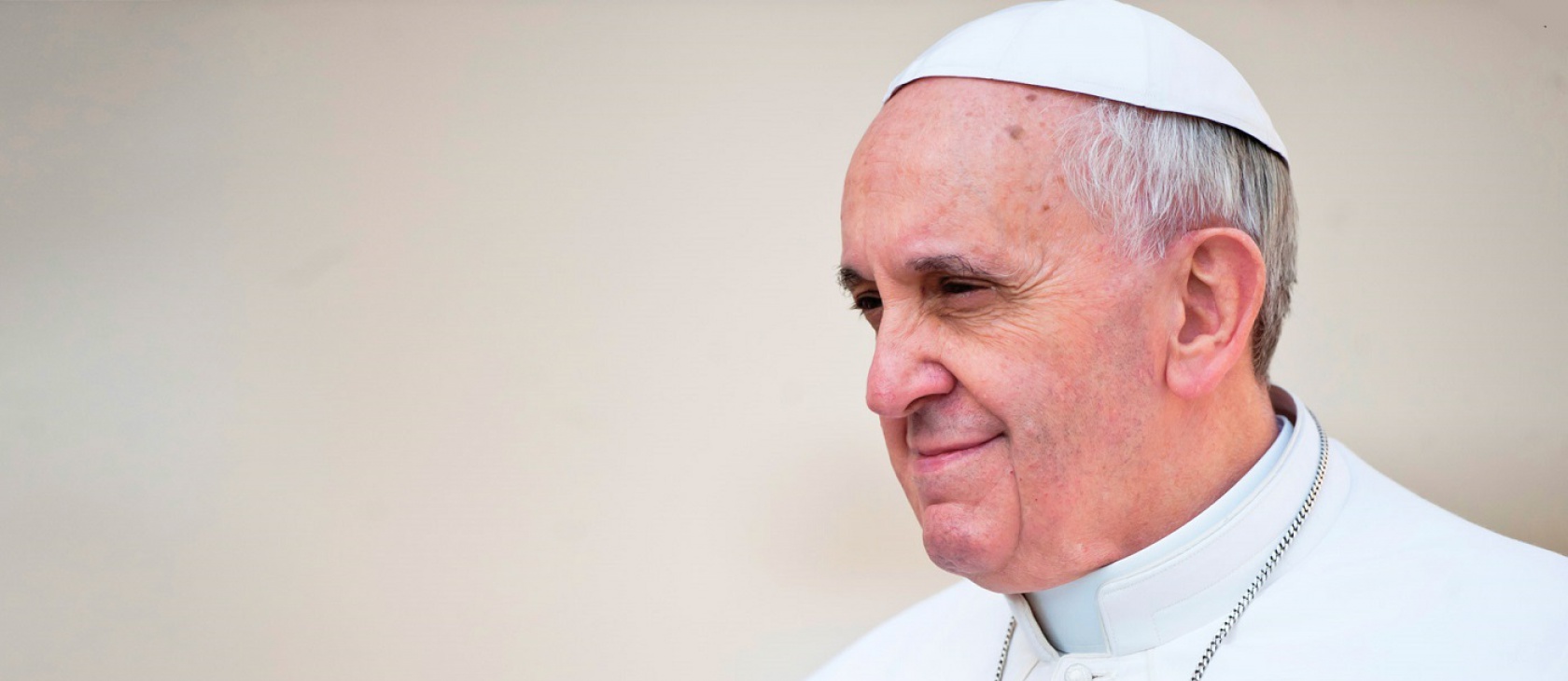Thousands of world leaders have gathered in the Swiss Alps, as the four-day-long World Economic Forum began today in Davos. Among the messages the elites heard was one written by Pope Francis which touched on the importance of family, human dignity, and the role of “the entrepreneurial world” in fulfilling the “moral imperative” to create an uplifting economy for all. Forum attendees should work toward eradicating unemployment, corruption, and unethical technological developments.
The address – which was written on January 12 – was read by Cardinal Peter Kodwo Appiah Turkson, the prefect of the Dicastery for Promoting Integral Human Development.
The speech advised Davos attendees to “seek better foundations for building inclusive, just, and supportive societies, capable of restoring dignity” to all. “[I]f we want a more secure future, one that encourages the prosperity of all, then it is necessary to keep the compass continually oriented towards … authentic values.”
"The entrepreneurial world has enormous potential to effect substantial change by increasing the quality of productivity, creating new jobs....."
Those values include creating an environment that facilitates widespread economic flourishing appropriate to human dignity – and that recognizes the unique role of the nuclear family.
“In this context, it is vital to safeguard the dignity of the human person, in particular by offering to all people real opportunities for integral human development and by implementing economic policies that favour the family,” the text said.
Furthermore, the pope believes that business and enterprise can drive this process:
It is a moral imperative, a responsibility that involves everyone, to create the right conditions to allow each person to live in a dignified manner. By rejecting a “throwaway” culture and a mentality of indifference, the entrepreneurial world has enormous potential to effect substantial change by increasing the quality of productivity, creating new jobs, respecting labour laws, fighting against public and private corruption, and promoting social justice, together with the fair and equitable sharing of profits.
The pope called on the forum to tackle “serious challenges” like the “growth of unemployment, the increase in various forms of poverty, the widening of the socio-economic gap, and new forms of slavery.”
Alongside concerns over human dignity, the speech said that developers have a duty to assure that artificial intelligence serves “the protection of our common home, rather than to the contrary, as some assessments unfortunately foresee.”
The speech’s reference to this year’s conference theme - “Creating a Shared Future in a Fractured World” - contains an apparent reference to Brexit and, possibly, Africa’s pending free trade agreement. “At the level of global governance, we are increasingly aware that there is a growing fragmentation between States and Institutions,” he said. “New actors are emerging, as well as new economic competition and regional trade agreements.”
How Davos can address these concerns
Seeing business as a social good. The pope’s address notes the positive impact of entrepreneurs in increasing global abundance and offering the dignity of work to a growing share of humanity. Accordingly Christians should see businesses, especially job creating start-ups, as a force for social good.
Unemployment. Entrepreneurs create jobs in the hopes of realizing a profit. High levels of taxation, minimum compensation, and regulatory compliance costs discourage job creation. Richard Teather has analyzed how unemployment – especially youth unemployment, an issue close to Pope Francis’ heart – decreases markedly when governments cut taxes and reduce spending.
Corruption. Defeating both government and private corruption requires impartial administration of justice and the rule of law. Both are affected by cronyism which, in turn, depends on the amount of government funds, favors, and privileges politicians may shower on their patrons. The more distant the level of government awarding the funds, the greater the corruption. A recent study found EU structural funds are the leading source of corruption in Central and Eastern Europe. Reducing the size and scope of government and abiding by the principle of subsidiarity helps assure that people succeed based on merit.
Family. A number of Davos presentations will focus on the themes of the papal speech, including a panel asking, “Will the Future be Human?” However, no scheduled event appears to focus exclusively on the economic impact of globalism on the family. Participants may wish to explore how the social welfare programs affect family formation, and how strong families spur economic growth.
The pope’s speech did not hint that the Vatican had these solutions in mind. It warned that, in the modern economy, “men and women risk being reduced to mere cogs in a machine that treats them as items of consumption to be exploited.” Martin Luther King Jr. denounced Communism, which executed 100 million people, with virtually identical language. The speech denounced “profit at all costs” and circumscribed the limits of “economic freedom, holding that “the market must not be absolute.”
In addition to the papal message, the World Economic Forum is slated to hear from transatlantic leaders including President Donald Trump, Justin Trudeau, Theresa May, Angela Merkel, Emmanuel Macron, and European Commission President Jean-Claude Juncker, among many others.
You can read the full papal speech here.




